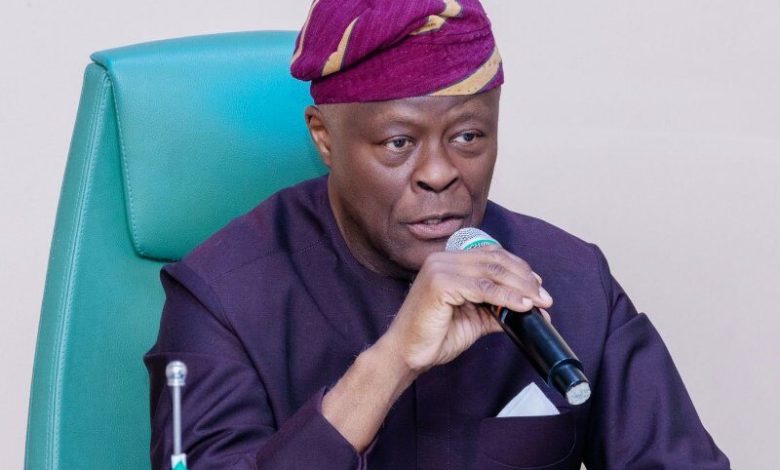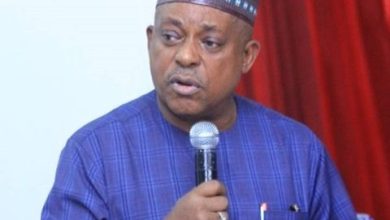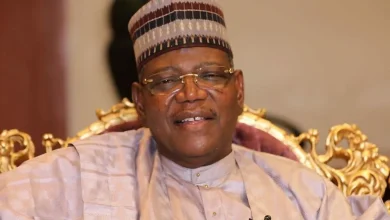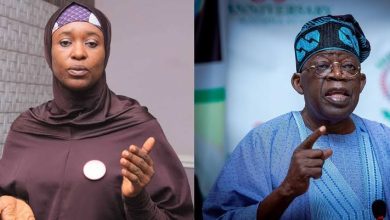Wale Edun Explains Why Nigeria Can Avoid IMF Loans

In Abuja, Emmanuel Addeh and James Emejo; in Lagos, Nume Ekeghe and Esther Oluku
Contrary to suggestions that the nation might soon look to the Bretton Woods institution for assistance, Nigeria has no reason to approach the international lender, the International Monetary Fund (IMF), for any loans, according to a statement made yesterday by Wale Edun, the country’s minister of finance and coordination minister of the economy.
In addition, yesterday, Mr. Olayemi Cardoso, the governor of the Central Bank of Nigeria (CBN), revealed that the bank would create a compliance department by February in order to resolve previous issues, bring the financial sector into compliance with international norms, and create a more robust and transparent industry.
On this day, the international consulting firm PricewaterhouseCoopers (PwC) predicted that Nigeria’s GDP would increase by 3.3% in 2025 as a result of ongoing policy reforms.
The company also forecasted a comparatively stable economy, characterized by stable exchange rates bolstered by CBN reforms in the foreign exchange market, which are anticipated to increase capital inflows.
Nigeria is currently depending on comparatively less expensive financing sources from the World Bank and the African Development Bank (AfDB), Edun clarified in an interview with Arise Television on the fringes of the ongoing World Economic Forum (WEF) in Davos, Switzerland.
Furthermore, he maintained that Nigeria does not have a balance of payments issue and will not require the international bank’s short-term funding intervention.
“If you were to report that Nigeria is approaching the IMF for funding, I can picture the headlines. The truth is that, as a developing nation, we obviously need money for the government to invest in important infrastructure and to enhance the business-friendly environment. We also need to borrow money.
“We have employed a wide range of funding sources, including the World Bank, AFDB, and the multilaterals, all of which are reasonably priced. We have depended on Nigerian savings by persuading them of the president’s macroeconomic strategy and its potential for commercial and economic expansion as well as for enhancing the business climate.
The commercial end of funding, the Euro bond market, is obviously something we have approached. Thus, we have completed the entire spectrum. When it comes to IMF financing, the organization usually provides assistance for short-term crises and balance of payments problems.
In Nigeria’s situation, our trade balance is positive. The balance of our current account is positive. We’re increasing our reserves. It was recently stated by the Central Bank Governor that we have improved and increased the reserves by more than $10 billion.
IMF funding is not the right source in this situation. We now need to maximize our assets after making the most use of concessional and multilateral finance.
“We must apply equity. Our only option is to rely on crowding in the savings, especially from the private sector in Nigeria and globally through foreign direct investment. Edun said, “We must keep in mind that we have made great progress in enhancing the economic climate at this time.
Read Also: Bauchi Governor Criticizes Wike, Labels Him a ‘Transactional Politician’
He acknowledged, though, that both food inflation and the cost of living are still high, adding that in addition to limiting demand, the supply side must also be strengthened to reduce inflation.
Nonetheless, we acknowledge and properly address the reality of rather substantial inflation. The cost of living is expensive. Food costs a lot. And that is what Mr. President is concentrating on when deciding what to do next. Naturally, the Central Bank is in charge of the high rate of inflation since it regulates the monetary instruments, especially interest rates. Inflation, however, affects more than just money.
We all have to battle inflation. Furthermore, there is still much to be done to increase the supply from a financial standpoint. It takes more than merely limiting demand to lower a good’s price.
It also has to do with expanding supply. Additionally, as has been the case in Nigeria during this dry season harvest, despite concentrated efforts to supply the various inputs, herbicides, fertilizer, and seeds to smallholders in particular, we are enjoying a strong crop; nonetheless, more work needs to be done further.
As Edun noted, “there is a commitment to increasing food production, so achieving lower prices of food, more availability and affordability of food for Nigerians, that is a major commitment coupled with growing the economy as a whole.”
Nigeria’s economy is different from last year’s because the necessary reforms have been mostly executed and we’re starting to see results, the minister said, arguing that Nigeria was slowly turning the corner.
“Economy growth has resumed. The foreign reserves are increasing in size. As a percentage of revenue, debt servicing is declining, and the deficit, or debt as a percentage of GDP, is also declining. Therefore, the investment climate is considerably better now,” the minister continued.
He claims that the vice president’s delegation from Nigeria has met with business leaders in Davos, and that these discussions will lead to billions of dollars in investments in Nigeria, particularly from international corporations and those involved in the financial payments and fast-moving consumer goods industries.
And they have already stated that they are prepared and eager to make these investments right away under the better foreign exchange regime and the better investment climate.
The minister noted, “And we have a number of other bilateral meetings lined up to talk to investors who we hope are going to be making their decisions to invest in the Nigerian economy, create jobs, grow economies, and help reduce poverty in our country.”
In addition, he said that President Bola Tinubu is currently receiving a lot of praise and respect for having guided Nigeria’s economy and society away from what he called devastation, waste, and extremely high subsidies.
Having done so, he emphasized that investors will soon begin flooding into Nigeria and gave his word that Tinubu was committed to building the country’s economy.
Nigeria is once again drawing the greatest amount of investment in the oil and gas industry in Africa. It was already behind schedule. Now it’s back in the spotlight. In my opinion, the similar phenomenon is taking place in other sectors of the Nigerian economy. The 19 main subsectors are all expanding. They are getting better.
The fact that investors, both Nigerian investors as well as foreign direct investors, are waiting in line and prepared to enter is also crucial to stress. Therefore, my prediction is that the investment climate will continue to improve, which would boost the Nigerian economy’s competitiveness and productivity. It will boost the economy, generate employment, and lessen poverty.
In addition, there is a strong commitment to preserving the social safety net and enhancing the provision of assistance, especially to the poor and most vulnerable, through direct benefit transfers and other measures that lower living expenses. The future is therefore bright. The prognosis is excellent,” he claimed.
Regarding the recent approval of a 50% increase in telecom charges, he stated that it will aid in the telcos’ effective operation and that it will be reviewed further.
Of course, I agree with you that the business competition for the telcos, whose pricing is, of course, somewhat regulated, must take into account the fact that over a 12-year period, costs have increased and inflation has occurred. They can’t simply impose any tariff they want.
Thus, the rise in the cost of living must be taken into account. However, I believe that 50% is a good place to start, and that the time and sequencing of some of these changes—which are required as they are—are crucial. And in this specific instance, we want the telecoms, which are an extremely important component of the Nigerian economy, to function effectively. They are part of the infrastructure that is part of the Nigerian business climate.
“We want them to effectively end calls. Dropped calls are not what we want. They must provide us with high-quality services. We want them to expand, create jobs, and essentially raise the nation’s GDP at the same time.
And that’s the reason for this fifty percent increase. Furthermore, I think that as we move forward, this scenario will be examined from a forward perspective. He continued, “Review, consultation, and discussion in this area will continue.”
Cardoso, the governor of the Central Bank of Nigeria (CBN), revealed that the bank planned to create a compliance division by February. He said that the action was intended to rectify previous issues, bring the financial sector into compliance with international norms, and create a more resilient and transparent industry that could propel the nation’s expansion.
Cardoso gave a speech during the Lagos press conference for the Nigerian Economic Summit Group’s (NESG) 2025 Macroeconomic Outlook Report.
The department will have both an internal and external focus, he said, and it will be operational by the end of February.
He stated that in order to improve market oversight, the government would keep an eye on participants to make sure best practices are followed, and those who don’t would face consequences.
Investor trust should rise as a result of this endeavor, which will also make the financial system more reliable and effective.
Additionally, the CBN forecasts 4.17 percent GDP growth in 2025, boosting the 3.36 percent increase anticipated in 2024.
Cardoso stated that stable crude oil prices, greater domestic oil output, improved refining capabilities, and the ongoing execution of government reforms will be the main drivers of the upward growth trajectory.
predicts a comparatively stable economy with stable exchange rates, bolstered by the apex bank’s FX changes that are anticipated to increase capital inflows, and has also forecast a 3.3% growth rate for the Nigerian economy in 2025, backed by ongoing policy reforms.
Due to tighter monetary policies and improvements in the country’s foreign exchange market dynamics, the tax and advisory services firm also predicted that inflation would drop to 26%.
The company shared its forecasts at an executive discussion on Nigeria’s economic outlook and budget for 2025, which it organized in collaboration with BusinessDay.
Nonetheless, Cardoso stated: “GDP growth is expected to increase from 3.36 percent in 2024 to 4.17 percent in 2025.” Stable crude oil prices, expanded refining capacity brought about by the Dangote plant, and the revival of the Port Harcourt and Warri refineries serve as the foundation for this progress. Additionally, a stable exchange rate will be essential to sustaining this upward trend.
He added that higher oil production and $6 billion in foreign capital inflows helped Nigeria’s foreign exchange reserves reach over $40 billion by the end of 2024. By mid-2025, it is anticipated that the nation’s oil production will have increased to 2.3 million barrels per day, contributing to economic expansion.
He emphasized how the CBN’s foreign exchange policies have improved market efficiency and transparency by implementing programs like the Foreign Exchange (FX) Code and the Electronic Foreign Exchange Matching System (EFEMS).
The foreign currency disclosure repatriation and investment scheme and the foreign exchange matching system will improve market efficiency and transparency, lessen the discrepancy between official and Bureau de Change (BDC) exchange rates, and promote market stability, the CBN governor stated. The outcome of many of those efforts is currently seen on our market,” he said.
In order to improve diaspora remittances, the CBN also started the non-resident BVN program and gave new International Money Transfer Operators (IMTOs) preliminary clearance. In order to promote more involvement with the financial system, this action attempts to give Nigerians residing outside access to banking services in their native nation.
“The foreign exchange matching system and the foreign currency disclosure repatriation and investment scheme will improve market efficiency and transparency,” he stated. Additionally, strengthen market stability by minimizing the difference between the official and BDC exchange rates. Our market is currently showing the fruits of many of those initiatives.
“We will undoubtedly improve our systems to continuously monitor market players, make sure that everyone operating in that market follows best practices, and deal with those who don’t follow them.
“The bank approved new IMTOs in principle to increase diaspora remittances through official channels. Additionally, the bank recently launched the nonresident BVN to allow Nigerians living abroad to access banking services in their birthplace.”
“This is a clear example of recent initiatives and products that we have launched in response to the dialogue we have had with many abroad, understanding their problems and opportunities they are looking for in Nigeria and being able to make life much easier for them,” he said.
“I have no doubt that a very favorable result will be achieved. The effects are beginning to become apparent already. The international remittances and IMTOs are impressive.
“With over $6 billion in foreign capital inflow into Nigeria’s external reserves surpassing $40 billion in 2024—a major milestone the consequence of our efforts—investor confidence is on the rise. We stress once more the importance of increasing reserves’ quantity and quality.
Read Also: Direct Transfer to Local Councils Fails as FG Releases January Allocation to States
He went on to say, “We want to make sure that the market-oriented policies and reforms will promote a more competitive business environment as we move forward through 2025. Businesses operating in Nigeria will be significantly impacted by these events and will need to adjust to a changing economic environment.
There are many things to say about the fact that we are in a position where the foreign exchange rate has changed. This has drawbacks, particularly for people who rely heavily on imports, but it has also created opportunities, and I see many foreign investors stepping in to seize those opportunities.
“Our currency is much more competitive at this point, and the implications for exports and productive activity are substantial in terms of adjusting to new economic realities.”
With consistent policy improvements, Nigeria’s economy might reach a GDP growth rate of 5.5%, according to Dr. Olusegun Omisakin, Chief Economist and Director of Research and Development at NESG. He underlined that specific actions could unleash the economic potential of the nation.
Christian Ebeke, the Nigerian resident representative for the International Monetary Fund (IMF), praised the CBN for failing to provide the Federal Government with Ways and Means advances in 2024, calling it a positive move. The impact of economic reforms on vulnerable communities should be mitigated, he urged officials.
Although the CBN was expected to continue its monetary tightening posture throughout the year, which would result in higher interest rates to ensure long-term price stability, PwC voiced fears that the nation’s growth prospects may be severely hampered by ongoing economic headwinds.
Higher financing costs could have an impact on firms, according to Mr. Olusegun Zaccheaus, a partner and lead for PwC Strategy and Practice in West Africa.
Because of the substantial fiscal deficits and high debt servicing costs, PwC expressed special worries that fiscal sustainability would stay somewhat elevated.
Zaccheaus also found ways for companies to improve certain value chains, deal with industry consolidation, and take advantage of export markets in Africa and around the world.
He said that current National Bureau of Statistics (NBS) efforts to rebase the nation’s GDP might boost economic growth and lower the debt-to-GDP and tax-to-GDP ratios.
The potential for growth could be further undermined, he added, by enduring underlying fiscal issues like tax deficits and growing debt servicing costs.
In order for monetary authorities to establish suitable interest rates and carry out focused interventions, PwC claims that an updated consumption basket would offer a more accurate indicator of changes in the cost of living.
Although moderate revenue growth was expected, Zaccheaus added that production and operating costs could increase due to high energy costs and infrastructure issues.
He also stated that FX reforms are expected to increase Nigeria’s exports and worldwide competitiveness.
While population growth and demographic trends may create chances for digital innovation, youth-oriented marketplaces, energy-efficient data centers, broadband expansion, and 5G adoption, he added, increasing capacity for refining crude oil would decrease fuel imports.
He asserts that “businesses can increase exports and explore new markets through the African Continental Free Trade Area (AfCFTA) and other regional initiatives.”
“Value addition for processed agricultural products is gaining popularity, which businesses can take advantage of.”
He noted that regulatory capital needs may force mergers in the insurance and banking industries, and he advised companies to be ready for these developments.
He stated that growing credit costs could impact discretionary spending and reduce demand for expensive goods.
Kenneth Erikume, a PwC partner, also outlined important elements that are anticipated to influence the county’s industrial growth over the medium term, specifically policies pertaining to taxation, agriculture, and special agro-industrial processing zones.
Erikume emphasized the significance of promoting the use of compressed natural gas (CNG), small and medium-sized businesses (SMEs), and tourism in order to promote growth. Additionally, he emphasized the necessity of business-friendly policies to draw in investments and promote economic growth.
Erikume recognized mining and quarrying as important sectors for sector-specific growth, especially the production and export of gemstones. He suggested investing in surveillance technologies to counter unlawful mining.
In addition, he recommended building schools, hospitals, highways, and security facilities in addition to extending the country’s fiber optic network by 90,000 kilometers to improve connection and ease trade.





